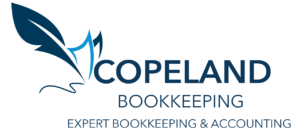
Taxes can be a major headache for construction business owners. Between fluctuating income, subcontractor payments, and expensive equipment, it’s easy to feel like you’re losing more to taxes than you’re taking home. The good news? With the right tax strategies, you can legally reduce your tax burden, keep more cash in your business, and avoid IRS trouble.
In this article, we’ll cover key tax-saving strategies every contractor should know.
1. Claim Every Construction-Specific Deduction
Most construction businesses miss out on thousands in deductions every year. Here are some you should never overlook:
✔ Vehicle Expenses – Work trucks, vans, and even mileage for business-related trips can be deducted. Choose either the standard mileage rate or actual expenses (gas, repairs, insurance).
✔ Equipment & Tools – If you buy tools, heavy machinery, or safety gear, write it off! Small tools can be expensed immediately, while larger equipment may qualify for depreciation.
✔ Materials & Supplies – Even if materials aren’t directly billed to clients, you can still deduct what you purchase for jobs.
✔ Home Office Deduction – If you manage your business from home, a portion of rent, utilities, and internet may be deductible.
✔ Marketing & Advertising – Website costs, business cards, social media ads—any money spent on promoting your business is tax-deductible.
Pro Tip: Keep detailed records and receipts. If you can’t prove an expense, the IRS won’t allow it.
2. Use Section 179 to Write Off Equipment Faster
Instead of spreading out deductions over several years, Section 179 lets you deduct the full cost of eligible equipment in the year you buy it.
✔ Trucks, excavators, bulldozers, and even office computers may qualify.
✔ Bonus depreciation also allows a 100% deduction on certain purchases.
For example, if you buy a $60,000 work truck, you may be able to deduct the full amount this year instead of over several years—lowering your taxable income significantly.
Important: There are limits, so check with a CPA before making large purchases.
3. Handle Subcontractor Payments Correctly
Many construction businesses rely on subcontractors, but incorrectly classifying them can lead to IRS penalties.
✔ Issue 1099-NEC Forms – If you pay a subcontractor more than $600 per year, you must send them a 1099-NEC.
✔ Avoid Worker Misclassification – The IRS may consider your subcontractors as employees if they work exclusively for you or if you control their schedule. Misclassifying can trigger fines and back taxes.
✔ Deduct Subcontractor Costs – Payments made to subcontractors are fully deductible as a business expense.
Best Practice: Always collect a W-9 form before paying any subcontractor. This keeps you compliant and saves headaches during tax season.
4. Claim the Qualified Business Income (QBI) Deduction
If your construction business is structured as an LLC, S-Corp, or Sole Proprietorship, you may qualify for a 20% deduction on taxable income.
This means if your business earns $100,000 in profit, you might only be taxed on $80,000—a massive tax break for small contractors.
Eligibility: This deduction applies to pass-through businesses but phases out at higher income levels, so check with a tax professional.
5. Plan Payroll Taxes the Smart Way
If you have employees, payroll taxes can take a big chunk out of your revenue. Here’s how to ease the burden:
✔ Offer Tax-Advantaged Benefits – Retirement plans (401k), health insurance, and HSAs reduce taxable wages, lowering payroll tax obligations.
✔ Claim the Work Opportunity Tax Credit (WOTC) – If you hire veterans, ex-felons, or other targeted workers, you could get a tax credit of up to $9,600 per hire.
✔ Automate Payroll Tax Payments – Missing payroll tax deadlines can lead to hefty IRS penalties. Use payroll software or a payroll service to stay on track.
Warning: Payroll tax mistakes are one of the biggest reasons small businesses get audited. Always set aside funds for payroll taxes.
6. Choose the Right Business Structure for Tax Savings
Your business structure affects how much tax you pay. Here’s a quick breakdown:
✔ Sole Proprietor – Simple setup, but you’ll pay self-employment tax (15.3%) on all profits.
✔ LLC – Flexible, but still subject to self-employment tax unless taxed as an S-Corp.
✔ S-Corp – Allows you to split income between salary (taxed normally) and dividends (lower tax rate), reducing self-employment tax.
✔ C-Corp – Rarely used for small contractors, but may work for larger firms due to corporate tax benefits.
Pro Tip: Many contractors save thousands by switching from an LLC to an S-Corp to reduce self-employment tax. Check with a CPA to see if this makes sense for you.
7. Stay Ahead of Estimated Tax Payments
Construction businesses often experience fluctuating income, making it tricky to pay estimated taxes.
✔ Set aside 25-30% of profits for taxes to avoid underpayment penalties.
✔ Use the IRS “Safe Harbor” Rule – If you pay at least 90% of last year’s tax bill, you can avoid penalties—even if you owe more this year.
✔ Make quarterly payments (April, June, September, and January) to stay on track.
Best Practice: Use accounting software like QuickBooks or Xero to calculate and automate estimated tax payments.
8. Keep Impeccable Records to Avoid IRS Trouble
Nothing raises red flags with the IRS faster than poor bookkeeping. Stay audit-proof with these simple habits:
✔ Track all income and expenses – Use accounting software to stay organized.
✔ Keep receipts and invoices – The IRS won’t allow deductions without proof.
✔ Separate business and personal finances – Always use a business bank account and credit card.
Warning: Construction businesses are frequently audited due to cash transactions and subcontractor payments. Keeping clean records protects you.
Final Thoughts: Be Proactive to Reduce Your Tax Bill
Construction taxes don’t have to drain your profits. With smart planning, you can reduce your tax liability, increase cash flow, and stay compliant.
✔ Work with a CPA who understands construction – They’ll help you claim deductions and avoid costly mistakes.
✔ Stay organized – Good bookkeeping makes tax season stress-free.
✔ Plan ahead – Proactive tax strategies save you money year-round.
By applying these tax strategies, you’ll keep more of your hard-earned money and build a more profitable construction business.
Need Help Managing Your Construction Finances?
If taxes feel overwhelming, you’re not alone. A bookkeeper or CPA can help you stay compliant, maximize deductions, and reduce your tax bill.
🔹 Want to talk to a pro? Book a short consultation with us here at Copeland Bookkeeping today for expert tax and bookkeeping advice!
Disclaimer: This article is for informational purposes only and does not constitute legal, tax, or financial advice. Tax laws and regulations may change, and the best tax strategies depend on your specific situation. Always consult a qualified accountant or tax professional before making financial decisions for your construction business.
